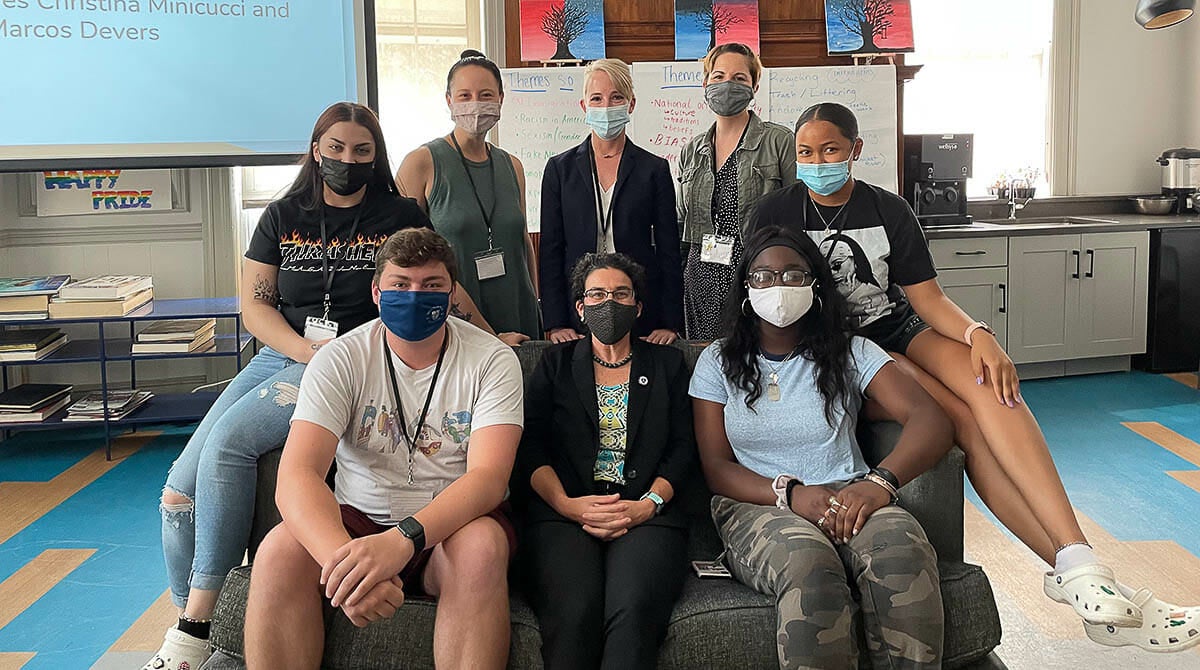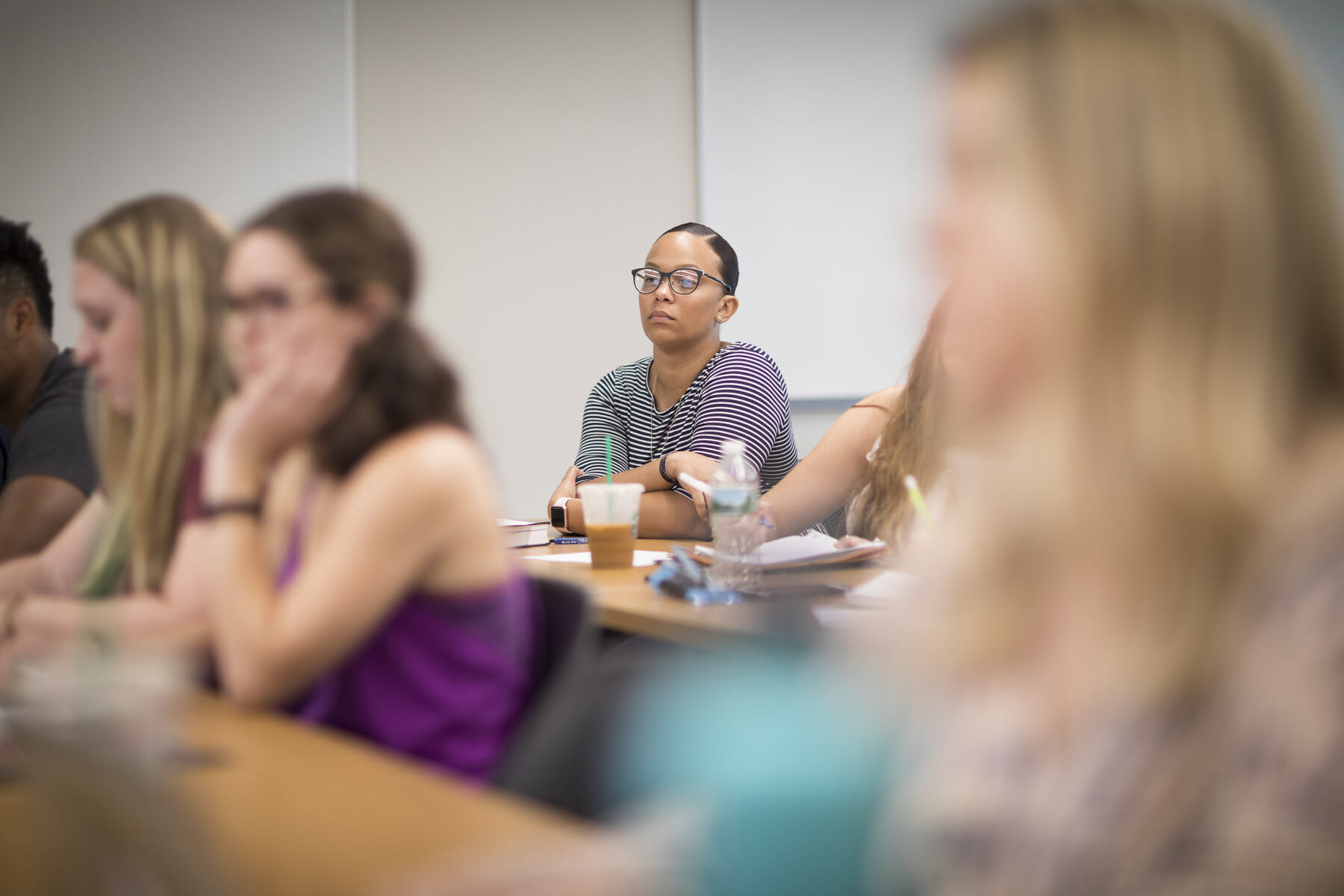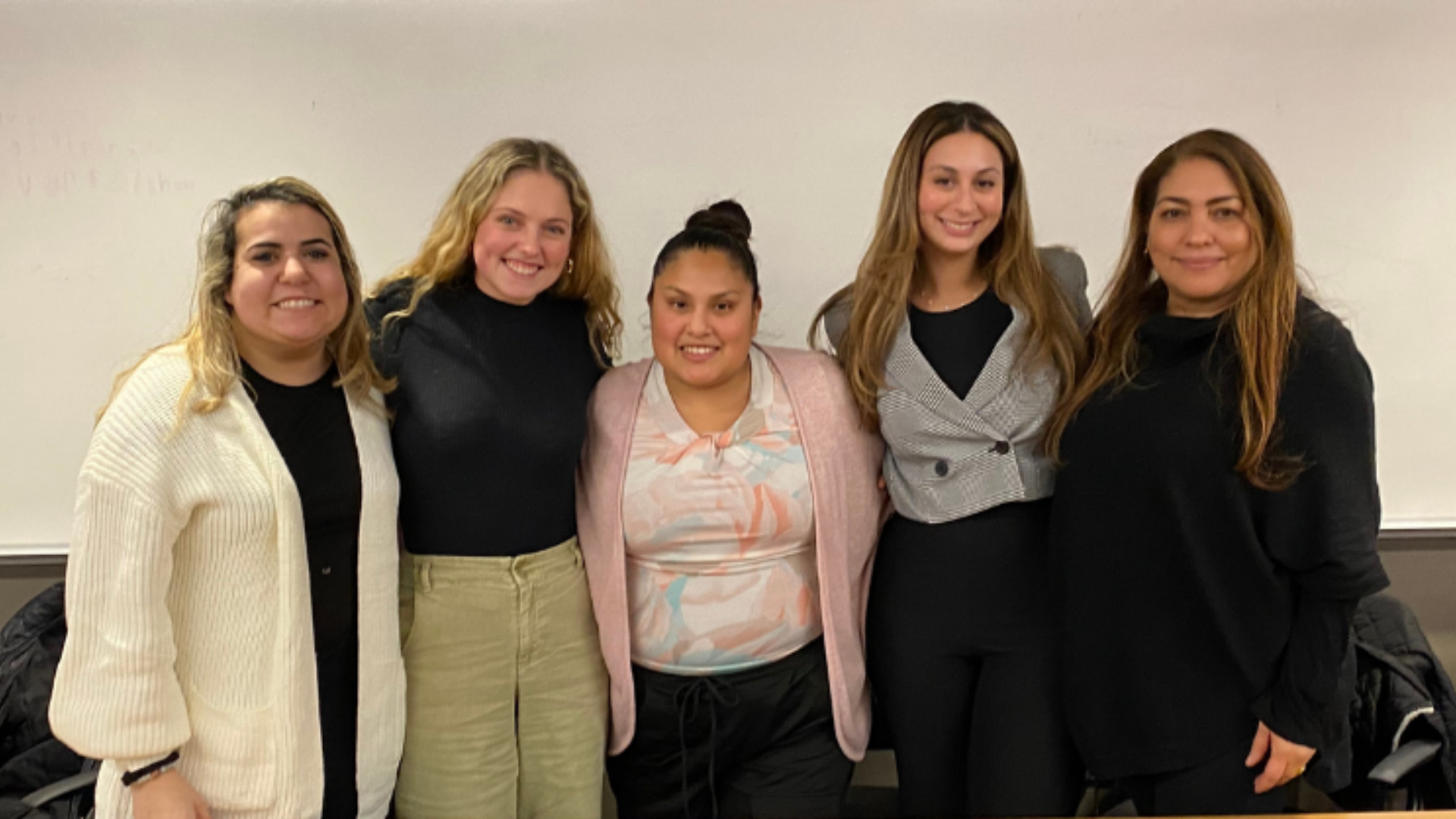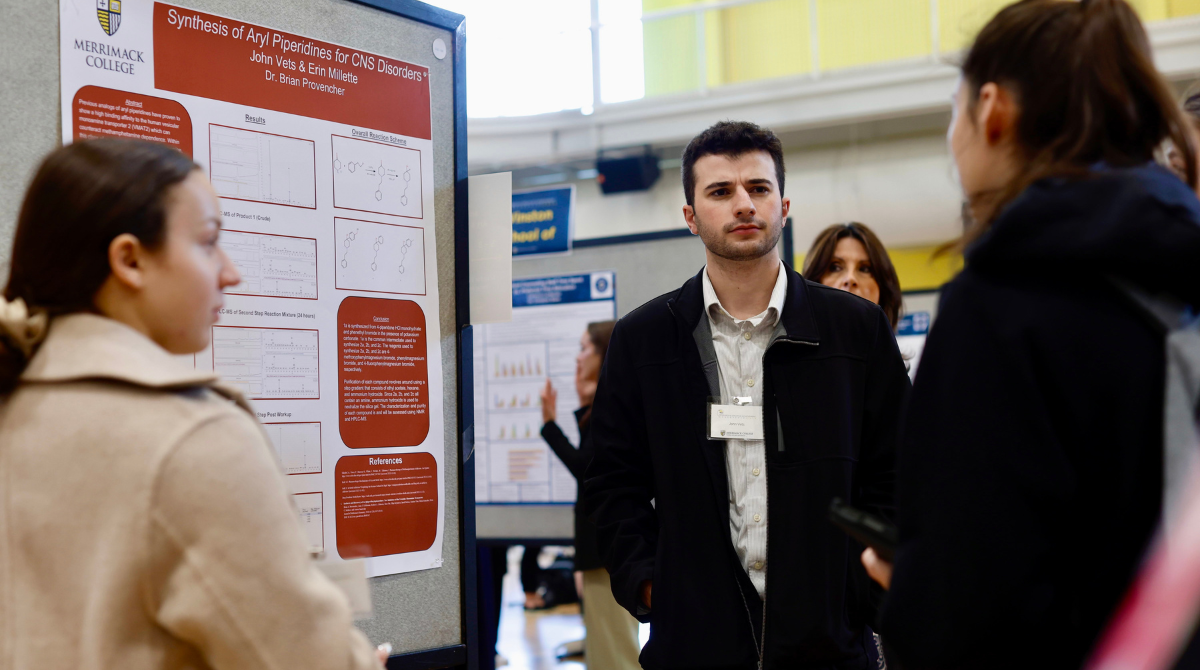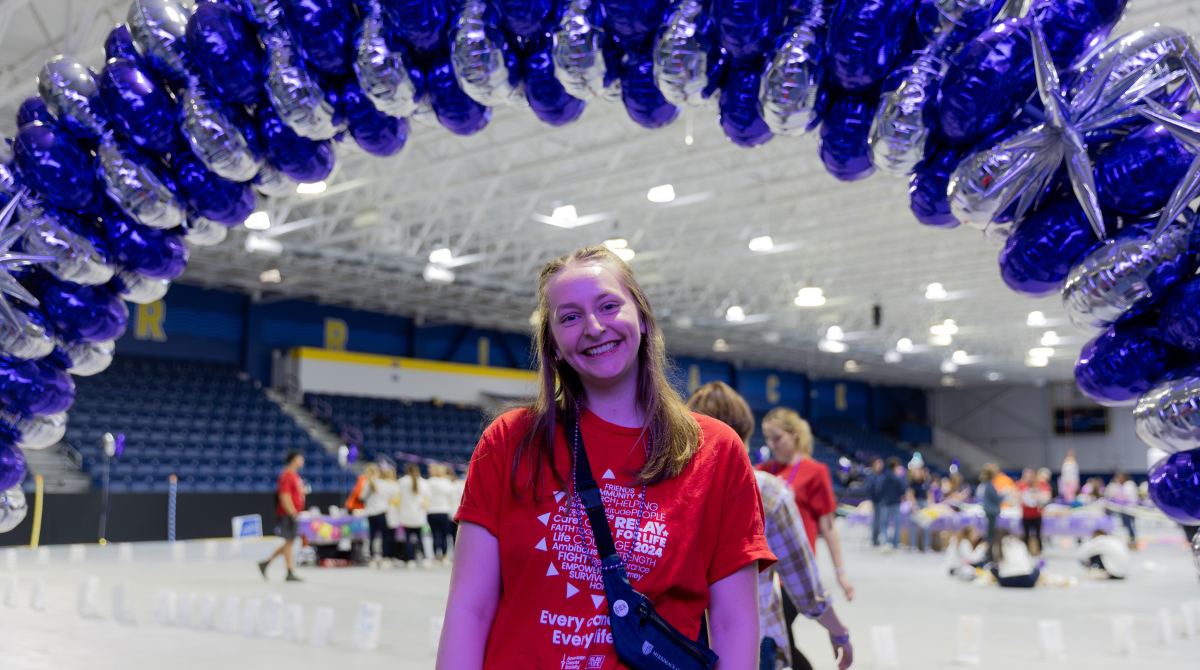Youth Voice was launched in summer 2021 by three Merrimack faculty members from a range of academic disciplines. Lecturer Kirstie Lynn Dobbs from political science and public policy, Assistant Professor Stephanie Garrone-Shufran from education and Associate Professor Laura Hsu from human development and human services worked together to build a summer curriculum for youth in the city of Lawrence and other local neighborhoods.
The program aims to offer civic and community engagement opportunities, educational resources as well as fun summer activities for middle-grade youth members at the Merrimack Valley YMCA, Lawrence branch. Youth Voice received funding from the Essex County Community Foundation’s Greater Lawrence Summer Fund (GLSF), the Sakowich Center for Undergraduate Research and Creative Activities (SCURCA) – one of Merrimack’s internal funding streams – and the President’s Office.
“Merrimack is committed to supporting wonderful community-based projects like Youth Voice,” said Elaine Ward, special assistant to the president for civic and community engagement. “This work not only furthers community partnerships and fosters experiential learning for Merrimack students, but also deepens the College’s relationship with local youth.”
The President’s Office will continue to support community-engaged teaching, research and practice through the Presidential Initiative for Civic and Community Engagement. Through the support of SCURCA, Youth Voice was also able to hire four Merrimack undergraduate students – two of whom grew up in Lawrence themselves – to serve as leaders in the program this summer.
“This work has meant a lot to me this summer because I was born and raised in Lawrence,” said Youth Voice Leader Samantha Rich ’23. “When I was growing up, I had always thought that civic engagement and politics were meant for adults. It makes me happy to see kids learning about how they can advocate for themselves. It meant a lot to me to help educate young kids about the steps they can take to start making a change in their community.”
Rich worked alongside fellow Merrimack students Nicholas Barber ’23, Yarielis Perez-Castillo ’24 and Fatoumata Kourouma ’22. Their cohort contributed to building the monthlong curriculum and pre-planning efforts, organized group activities and local field trips, collaborated with community organizations and facilitated conversations around thematic areas of interest.
“Youth Voice has been one of the most incredible experiences,” Barber said. “It took no time at all to feel a connection with these young students. They came in and were already able to identify issues they want to address in their community. Together, we worked to brainstorm ways they could address those issues and start creating the changes they want to see in the world.”
While the curriculum was developed at Merrimack among Dobbs, Garrone-Shufran and Hsu, leaders made sure to also include the youth in the planning. Program materials were pulled from youth surveys and early focus groups with local middle school and high school students to better meet the needs and interests of their target population.
Among topics of interest were disinformation and misinformation in the digital age, climate change and its impacts, food insecurity, navigating bias and fake news, and issues surrounding identity and supporting the LGBTQ+ community. Throughout the summer, youth members were then encouraged to not only brainstorm the challenges they see in their communities, but also think through and learn about potential solutions and action steps to address these issues.
“There seemed to be this real desire to learn more about civic engagement,” Dobbs said. “There’s a notable drive in these young people. They want to do something about the issues that they see in their communities.”
Youth members were particularly interested in learning how to navigate difficult social and political conversations with those who hold different opinions and beliefs. From family members to classmates, students were eager to learn new ways of navigating these conversations and building connections across barriers of political affiliation, socioeconomic disparities and stances on COVID-19 and vaccination rates.
“This is the age group where they’re really starting to get phones and become exposed to so many different streams of information,” Hsu said. “One of the things that we’re focusing on, and that the students themselves have shown a real interest in learning about, is trying to get them to think critically about the information they’re being exposed to and how to discern the truth.”
In addition to group brainstorming sessions and open dialogues, summer activities included a formal debate where students worked in teams to research a variety of topics and formulated arguments from multiple perspectives. Additional field trips took participants to the city of Lawrence to learn local history and culture and to an art walk and workshop with Elevated Thought. They also received a visit from Massachusetts State Representatives Marcos Devers and Christina Minicucci on Tuesday, July 20.
Devers and Minicucci spent the morning with students at the Merrimack Valley YMCA, where they spoke to the work and responsibilities of state representatives, answered student questions and shared progress on current projects and campaigns. They covered everything from increasing accessible swimming areas in local communities to advocating for quality school lunches, a topic of great interest to the group of middle schoolers.
Following their visit, Youth Voice leaders guided students in writing testimonials to the State House to ensure their voices and opinions were heard on issues they feel passionately about.
Throughout the summer, Youth Voice also leaned into community partnerships with local nonprofits and community-based institutions. Community partners included the Youth Development Organization, which visited to discuss out-of-school enrichment opportunities across STEM disciplines, the arts and leadership development; Elevated Thought, which visited for a one-hour workshop on art and social activism; and the Merrimack Valley YMCA, which served as the program’s host site.
The Youth Voice team was also able to tap into previous connections with youth members in Merrimack’s Early College Program, welcoming past and present Early College students to give presentations on community leadership.
“We were able to connect with youth through Early College and this new program in partnership with the YMCA,” Dobbs said. “One of our undergraduate leaders is also a former Early College student and current Pioneer Scholar at the College. Merrimack is involved here now at all these different levels, helping young people achieve all these different educational opportunities. I feel really honored to be a part of that.”
After a successful first run, Youth Voice members hope to continue programming in summer 2022. Their plans for the future include the addition of a peer mentoring component as youth members “graduate” from Youth Voice programming, move on to high school and beyond.
“The Youth Voice project is a strong example of the possibilities for Merrimack students and faculty to connect their teaching and research with local youth and continue to deepen community partnerships with vital organizations like the Merrimack Valley Y,” Ward said.
